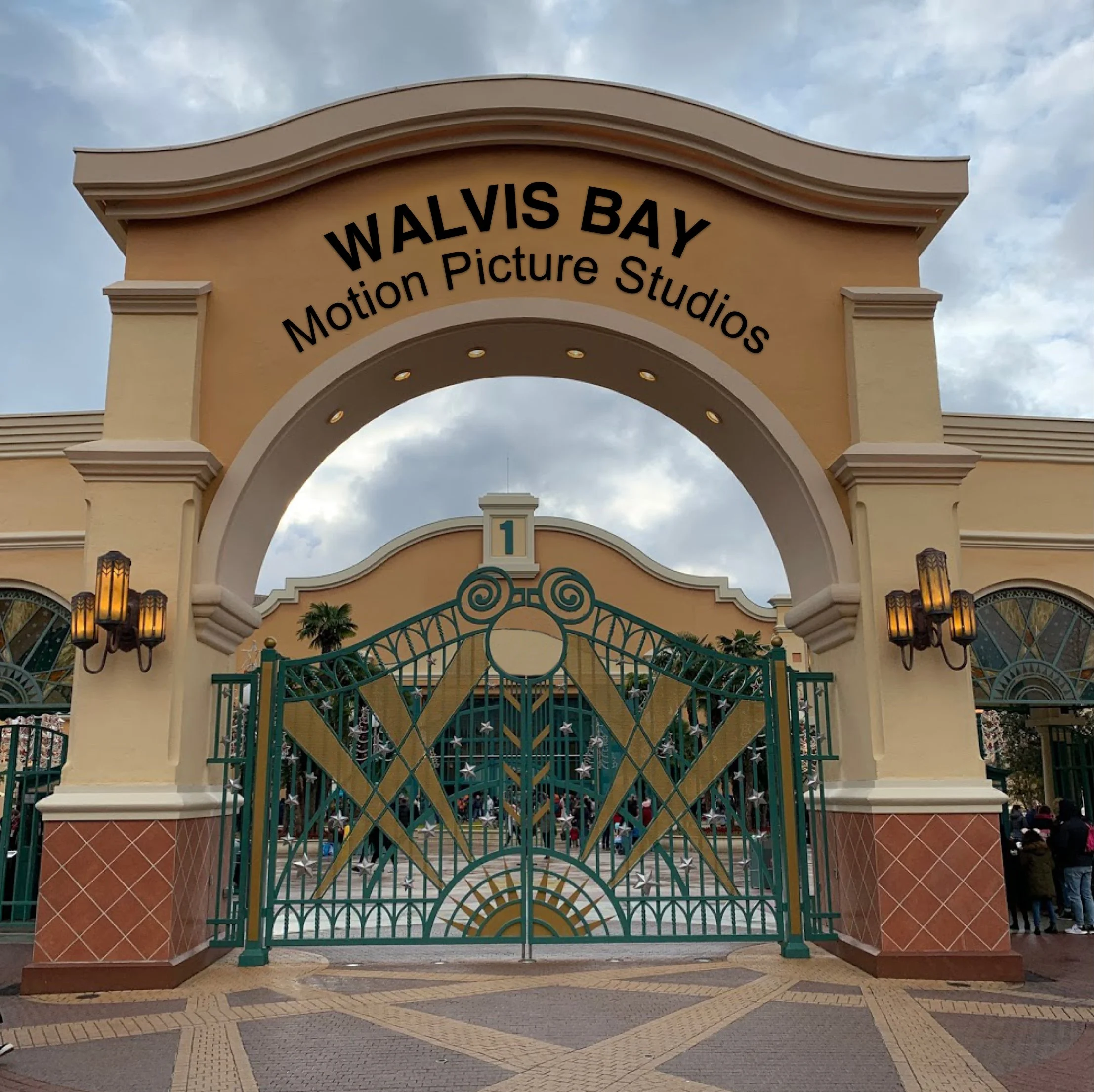James Russell leading campaign to rehabilitate graves of Blacks, build film & television studio in Namibia
March 14, 2023
James Russell has a lot on his plate these days.
Part of an investment group attempting to bring a film and television production company to Namibia, he spends nearly 40 hours weekly on Zoom meetings leveraging networks, seeking financial capital and trying to convince potential stakeholders that the entrepreneurial venture will obtain high rewards.
When not working on the large-scale project, Russell is making calls to politicians, seeking their support to get the Town of Niagara-on-the-Lake to clean and remount headstones in the Negro Burial Ground.
Thursdays are set aside for answering phones and doing other volunteer activities at the Ontario Black History Society (OBHS) downtown office.
“I have always had an interest in Black history because it is our history,” said Russell who joined the OBHS Board last November. “Unless we appreciate it, study it and understand it, it is difficult for us to go forward in a concrete manner.”
While driving through downtown Niagara-on-the-Lake for the first time in 1985, a sign on an open grass field that read, ‘Negro Burial Ground’, caught his attention.
It is on the site of the Negro Baptist Church that closed in 1878.
“Other than that, there is nothing to indicate that Black folks are buried there and that always bothered me as I passed that site about three to four times yearly,” he pointed out.
Russell took action.
In November 2021, he applied to the municipality for permission to conduct ground penetrating radar scans.
“I wanted to find out how many people are buried there,” said Russell.
Using $2,400 of his financial resources, he found 28 graves and 19 buried headstones.
Since the discovery, Russell has unsuccessfully tried to unearth and restore the stones.
The Town of Niagara has refused to acquiesce to his request.
He believes the $58,000 quote he received from Archaeological Research Resources Ltd. to clean and remount the limestone headstones is the obstacle.
“The town don’t want to pay that money even though they own the cemetery,” Russell said. “Last October, I found out that the town’s maintenance staff were laying down the headstones because it was too difficult to cut the grass with them up. I have been negotiating with the Bereavement Association of Ontario, asking them to force the Town to put them back in an upright position.”
Last summer, he sent 22 letters to municipal, provincial and federal politicians, including Prime Minister Justin Trudeau and National Association for the Advancement of Coloured People (NAACP) President & Chief Executive Officer Derrick Johnson asking them to write letters and send emails to the Town of Niagara-on-the-Lake requesting they pay for unearthing the headstones and cleaning and remounting them.
Russell was a member of a citizen-driven fundraising committee that just recently reached their first threshold of $5,000 for the first stage of an archaeological assessment.
“It took a year to raise that money, so just imagine how long it will take to get to $58,000,” he said. “I resigned from that committee last October because of frustration. It seemed all they want to do is meet and talk. I have found that being ‘a pain in the ass’ works better when dealing with government.”
Russell plans to spend the month of April at an Airbnb in Niagara, canvassing residents to petition the Town to pay for the unearthing and restoration work.
Just a few blocks away at one of Niagara-on-the-Lake oldest heritage houses at 240 Centre St. that is nearing restoration, he is seeking to dispel rumor that slaves are buried in the backyard of the property once owned by lawyer John Breakenridge who bought it in 1825.
A Texas lawyer owns the home.
“The new owner refuses to allow me to do ground penetrating radar to put to rest that rumor,” he said. “I am still working on that.”
A criminal charge Russell filed last December against the owner pertaining to improper or indecent interference with or offers any indignity to a dead human body or human remains, whether buried or not, was refused.
He and two partners are heavily invested in bringing a film and television studio to Walvis Bay that is a Namibia port town.
Possible family ties drove his interest in the project in the former German colony.
“My mom said my maternal great grandmother use to tell stories of southern Africa which prompted my sister and I to think that our ancestors came from the area now known as Namibia,” said Russell.
“Flight of the Phoenix’, ‘Generation Kill’ and ‘The Young Black Stallion’ are among the films shot there.
“The problem is the Hollywood cast and crew go into the country, film and then leave no infrastructure behind,” he said.
A 300-acre plot of land has been identified for the establishment of the US$78 million project.
Walvis Bay Motion Picture Studios (Photo contributed)
Russell said the investors plan to approach 18 Canadian mining companies operating in the country.
“We are reaching out to them and whatever the shortfall, and we are hoping there is none, will hopefully be made up by a German investor that we are already in discussion with,” he pointed out.
In addition, a crowdfunding campaign will be launched soon to raise US$55,000 for development costs that will include assembling a legal team and constructing a website.
Long before launching into business and community work, Russell took photos for Black newspapers in the city before joining the Toronto Star and the Toronto Sun.
His interest in photography came by accident.
At Russell’s first meeting with a Black youth organization (it operated out of the Home Services Association building on Bathurst St.) that was putting together a newsletter, a Yashica camera ended up in his lap after everyone refused to use it.”
He also freelanced for the Oakville Beaver and Scarborough Mirror before going to the Toronto Sun.
“After a year at the Sun, Norm Betts became the Photo Editor and had no use for me,” said Russell. “He told me I would never work for the newspaper again and that was it.”
He spent the next decade at the Star, winning the Canada’s Press Photographer of the Year Award after for a photo of two harbor patrol officers capturing a falcon in a parking lot at the corner of Lakeshore Blvd. E and Leslie St. in April 1991.
“This bird was on the loose for a few months until the officers spotted it,” said Russell who is married with five children. “I can’t recall what I was doing there. A Toronto Sun photographer, who was also there, stood while taking the photo, but I squatted and got that photo that won the prize.”
James Russell was a press photographer before turning to film production (Photo contributed)
Before winning the award, he quit the Star ‘because of the politics’ and returned to Los Angeles where he was born and raised before fleeing in 1967 to avoid military conscription.
At the time, Russell was stationed in DeKalb Junction in upstate New York with Volunteers in Service to America (VISTA) created in 1964 to alleviate poverty in the US by helping local organizations expand capacity to facilitate change.
“When I returned to the family home in LA after a year away, there was a draft notice on my bed,” he said. “I just re-packed my bags and came to Canada not knowing anyone here and with just $147 in my pocket. There was an organization here that helped draft dodgers. I contacted them as did many draft dodgers who came here.”
His 1991 trip back home was the second since he left 27 years earlier.
With five screenplays in hand and a film and television production company – MANKS Motion Picture Studios Inc. – in its infancy, he returned to LA full of hope.
“I thought I was going to become a famous screenwriter, but I quickly learnt that a lot of people have scripts in their pockets just waiting for the moment,” said Russell who wrote, directed and produced a promotional video featuring John Billingsley who is best known for his role as Doctor Phlox in ‘Star Trek: Enterprise’.
Back in Canada the next year after taking classes at the University of California, Los Angeles (UCLA) film school and networking, he was chosen to attend the Canadian Film Centre where he wrote, produced and directed his first short, ‘The Red Car’.
From 1992 to 1997, Russell was a film industry consultant while completing nine feature length screenplays, two television dramas and the screenplay for ‘You’ve Got The Key’, a Rhino Productions drama. He also produced and directed ‘The Painter’ that was shot on location in LA.
With the advent of the COVID-19 pandemic three years ago, Russell put the film and TV projects he was working on on hold.
“I am very focused on the Namibia projects, but we going to shoot the features we have in development in, or partially in Namibia,” he added.








